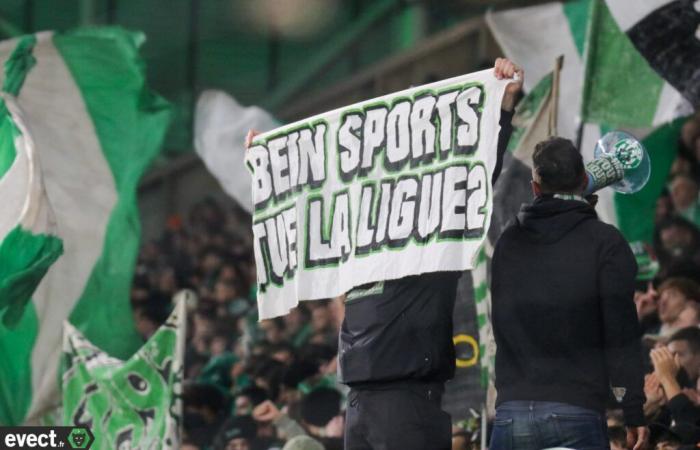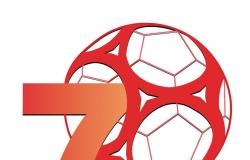Saturday after a quarter of play between AS Saint-Étienne and Montpellier, the match was briefly interrupted following tennis balls and bouncing balls being thrown from Kop Nord and Kop Sud. A protest action carried out since the resumption by numerous forums in France.
The interruption of the meeting between ASSE and MHSC this Saturday is not a first this season on the lawns of Ligue 1. Indeed, at the beginning of November already, the Lens-Nantes and Angers-PSG meetings were subject to interruptions due to tennis ball throws. This weekend, except in the Chaudron, the Nantes-Le Havre match was interrupted for similar reasons in the first period.
This new practice in France is not really one in Europe, in fact for two years, this way of contesting has appeared in several stadiums in Europe and in particular in Germany where the practice is regular when it comes to to express his dissatisfaction. THE “tennis ball protest” actually has its origins in the English stands and the supporters of Hull City who at the end of the 90s, to challenge the methods of David Lloyd, president of the Tigers and former tennis player, threw tennis balls on the lawn.
This Saturday, after fifteen minutes of play, the Saint-Etienne supporters launched a massive throw of tennis balls and bouncing balls. Also note the presence of remote-controlled cars on the lawn at the time of this protest movement. Two banners were then displayed. A first in the North, unequivocally: “LFP, Qatar, Beinsport, CVC, the bullet holes that are killing French football”. Then in the South: “You are the doggies of Qatar, while we wait for the backlash, let’s play ball”. Note that the match was not officially interrupted by Mr. Batta, the match referee, play was simply stopped for around forty seconds, while the stewards collected the hundreds of balls sent.
In a climate of distrust towards the decisions of the authorities for several seasons, French supporters are stepping up to the plate. In their sights: the LFP and the broadcasters. Criticisms which echo the financial pressure placed on clubs, collective sanctions, match programming times, the increase in the salary of the president of the LFP and even TV rights.
France






